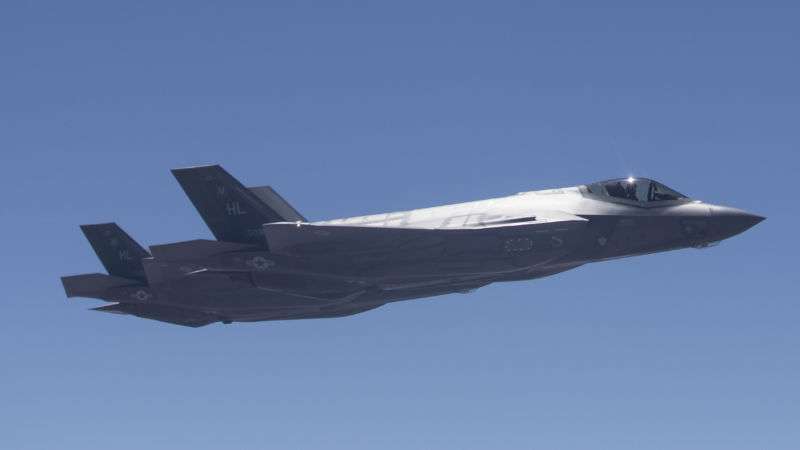
Turkey crosses “red line,” gets booted from F-35 partnership

Today, the White House officially announced that Turkey would not be allowed to purchase the F-35 Joint Strike Fighter. The US government had warned Turkish President Recep Tayyip Erdoğan that his government’s purchase of S-400 surface-to-air missile systems from Russia would be incompatible with NATO systems and would trigger an exclusion of Turkey from the F-35 program. Turkey was a financial contributor to the F-35 development program and already had pilots in the US in training to fly the aircraft; those pilots were kicked off US training bases in June.
US and NATO partners are concerned that the S-400 systems, supported by Russian technicians, will essentially amount to an intelligence collection system for Russia on NATO aircraft and military operations. But Erdoğan has been steadily marching away from NATO since the July 2016 coup attempt against his government. That coup led to the arrest of many military officers who were the backbone of the Turkish military and had long relationships with NATO partners. Former head of the Turkish air force Akin Ozturk was one of over 2,000 former members of the military given life sentences.
In a speech on July 15 (the third anniversary of the coup attempt), Erdoğan welcomed the first components of S-400 systems to Turkey, saying that “the S-400s are the strongest defense system against those who want to attack our country… God willing, we are doing this as a joint investment with Russia and will continue to do so.” He added that “with God’s permission,” the missile systems would be fully deployed by April 2020.
White House Press Secretary Stephanie Grisham issued a statement today announcing that the US would pull the plug on delivering the F-35 to Turkey. “Unfortunately, Turkey’s decision to purchase Russian S-400 air defense systems renders its continued involvement with the F-35 impossible,” Grisham said. “The F-35 cannot coexist with a Russian intelligence collection platform that will be used to learn about its advanced capabilities.”
Grisham noted that the US had made multiple offers to expedite delivery of US PATRIOT air defense systems to Turkey to meet its air defense needs but had been rebuffed by the Turkish government.
“Turkey has been a longstanding and trusted partner and NATO Ally for over 65 years, but accepting the S-400 undermines the commitments all NATO Allies made to each other to move away from Russian systems,” Grisham said. “This will have detrimental impacts on Turkish interoperability with the Alliance.”
Grisham acknowledged that the US “still greatly values our strategic relationship with Turkey” and that the relationship extends far beyond the F-35. “[W]e will continue to cooperate with Turkey extensively, mindful of constraints due to the presence of the S-400 system in Turkey,” Grisham said.
Part of what has driven Erdoğan’s decision to go with the S-400 system is that Turkey will gain the technology to build S-400 systems itself. “Now our goal is co-producing with Russia, ” Erdoğan said. “We’ll do this. We’ll go even further.”




